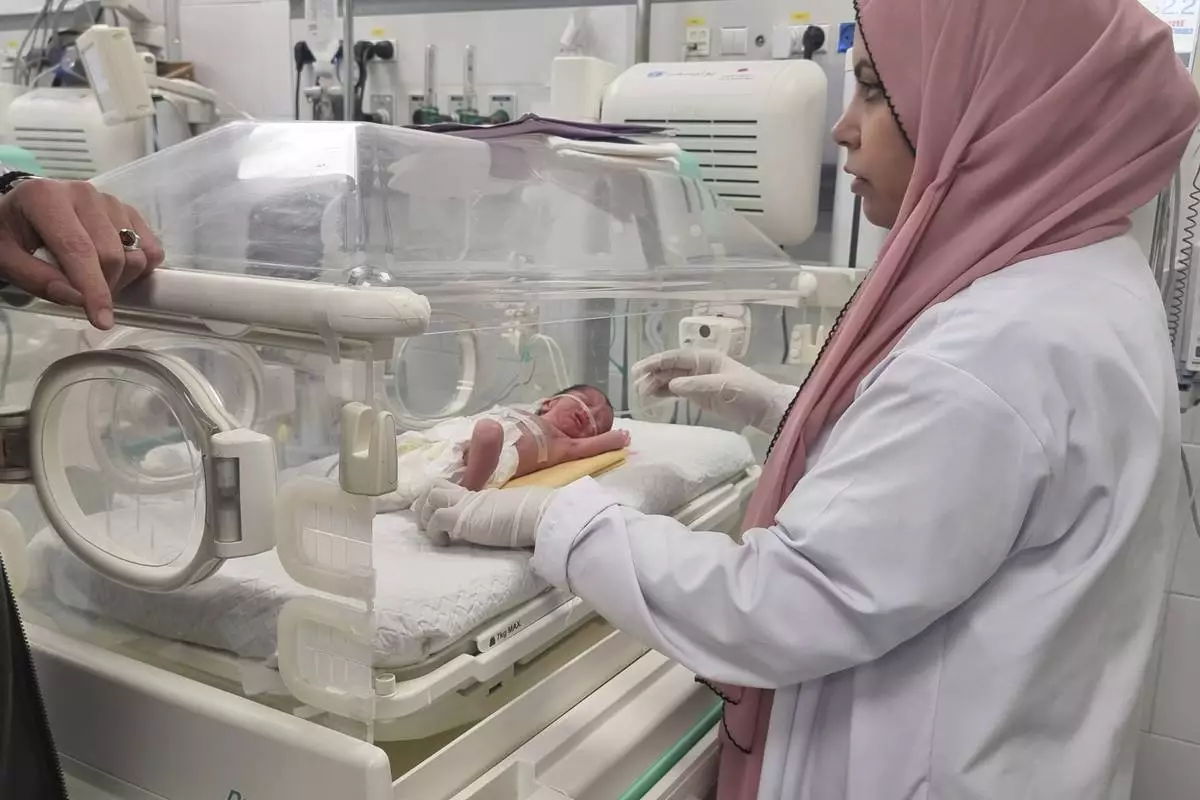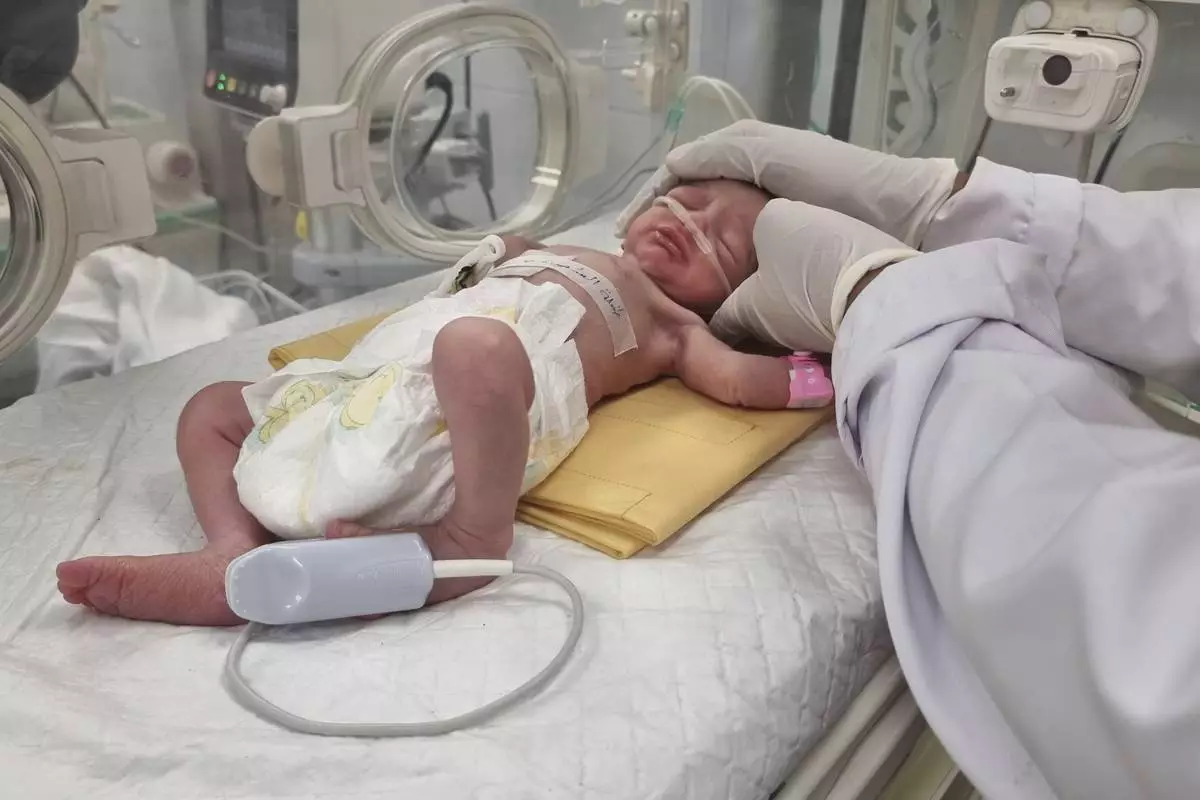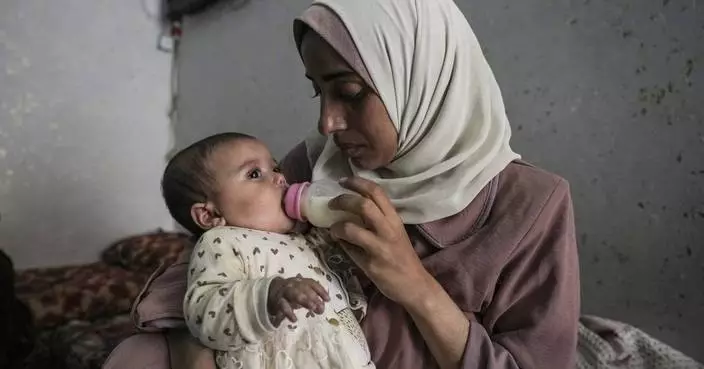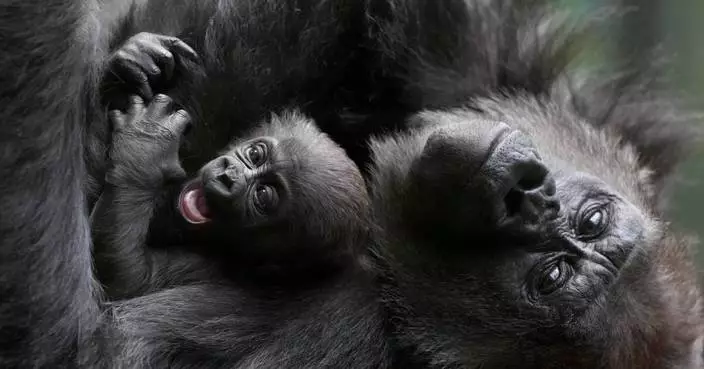Gemma and Ed Young thought Jack was just a happy boy – but the cause of his outbursts needed surgery.
Parents who thought their baby – who “giggled” for 17 hours a DAY – was just happy were shocked to discover he actually had a rare brain tumour, causing laughing seizures.
Gemma and Ed Young assumed their son Jack was just joyful when he started making chuckling sounds two-weeks after he was born.
But, becoming like a “record on repeat,” medics revealed that the outbursts were triggered by a hypothalamic hamartoma, a benign brain tumour causing “gelastic” epileptic seizures – dubbed “laughing seizures”.
Finally, two years after the outbursts, which could last from first thing in the morning until last thing at night, started Jack had a 10-hour operation to remove the growth and the strange seizures stopped.
His relieved mum Gemma, 32, of Winscombe, north Somerset, said: “There was no break from it, the chuckle sound was constant, and for a long time we had no clue why.
“We were exhausted and so happy when, after two long years, doctors could finally operate on Jack and put an end to his seizures.”
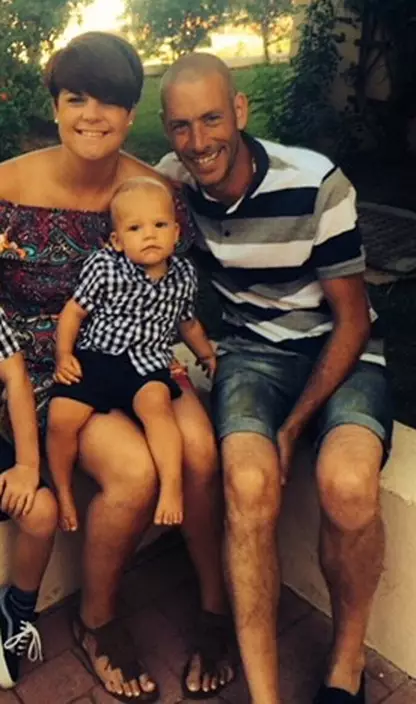
Gemma and Ed with Jack aged 15 months (Collect/PA Real Life)
Doctors explained how the rare gelastic seizures normally occur in only one in every 1,000 children with the brain condition epilepsy and involve sudden bursts of energy, usually in the form of laughter or tears.
After little Jack’s birth on May 11, 2014, his mum, a credit controller at Thatchers Cider, and dad Ed, 42, a project manager at the same company, noticed their lad chuckled a lot of the time, but they assumed he was just a happy baby.
Giggling in his sleep, as well as when he was awake, Gemma says the laughter – which sometimes involved 30 minute breaks but could run non-stop for 17 hours – did not wake him up.
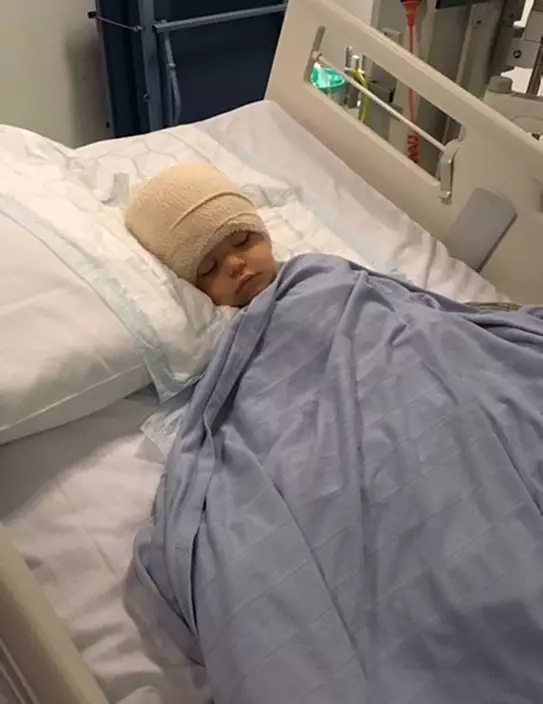
Jack after his operation (Collect/PA Real Life)
“To be honest, we just thought he was so happy all the time,” said Gemma, who also has a son, now nine, from a previous relationship, who she does not wish to name.
“It was a little chuckle but it just seemed to go on and on, like a record on repeat.
“To start with, I was just a new mum trying to get into a new routine, but after two months things became too much and we had to move Jack downstairs to sleep in the end, as he was keeping his brother up too, it was exhausting.”
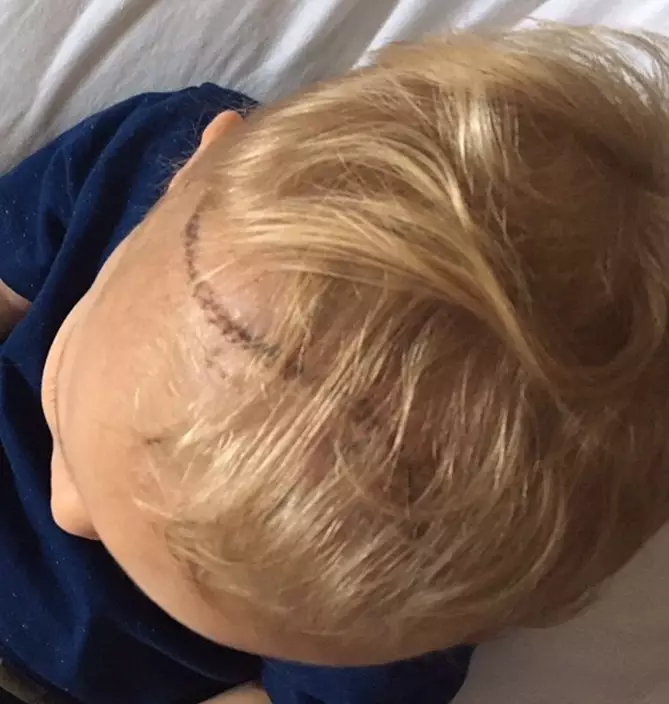
Jack's scar (Collect/PA Real Life)
Then, at Jack’s six-week check up, a health visitor told Gemma she had never heard Jack’s giggling sounds before and was concerned.
“I felt awful that another woman had noticed this in my baby, and as a mum it should have been me who realised it,” Gemma continued.
She immediately took Jack to see the GP, who was baffled and referred the baby to an ear, nose and throat (ENT) specialist.

Jack now (Collect/PA Real Life)
“By this time, none of us were getting any sleep at all and I was begging doctors to do something,” Gemma said.
“The sound was relentless and so unpredictable. It was hard to fall asleep, as I had no idea when the noise was going to happen again.”
But even the ENT team were left scratching their heads and referred the family to see a neurologist at Bristol Royal Hospital for Children.
By now, six months had passed . The family were shattered and scared about what was wrong with their little boy.
“Even a nurse at the hospital thought he was just laughing and was shocked when she realised his ‘laugh’ was the reason we were seeing doctors,” Gemma said.
“People would say to us, ‘Isn’t he a happy lad?’ and he was a really happy little boy, but his chuckle wasn’t laughter, it was something else. I had no idea what could be wrong with Jack, but I was terrified that it might never stop.”
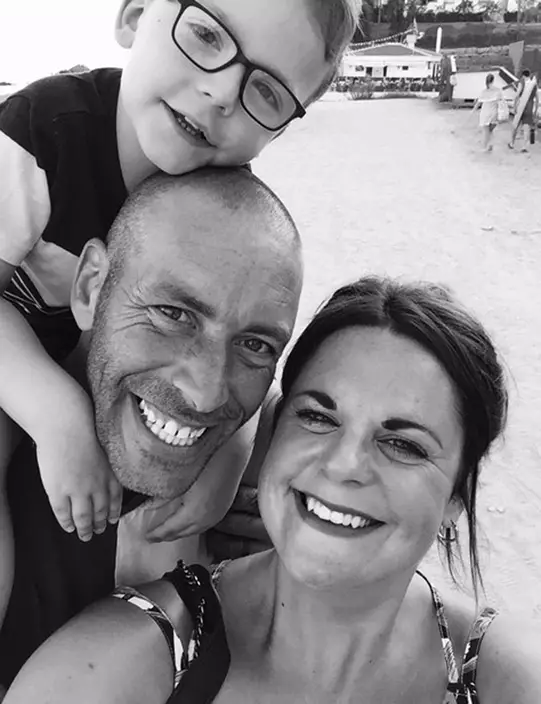
Gemma and Ed with Jack (Collect/PA Real Life)
Finally, after Jack had an MRI scan, his family were given a diagnosis in November 2014.
“The doctor said he had hypothalamic hamartoma, meaning he had a benign brain tumour the size of a grape at the base of his brain, which causes gelastic seizures.
“It was a huge relief to know what was actually wrong with him, but so heartbreaking at the same time to think he had gone through all of that.”
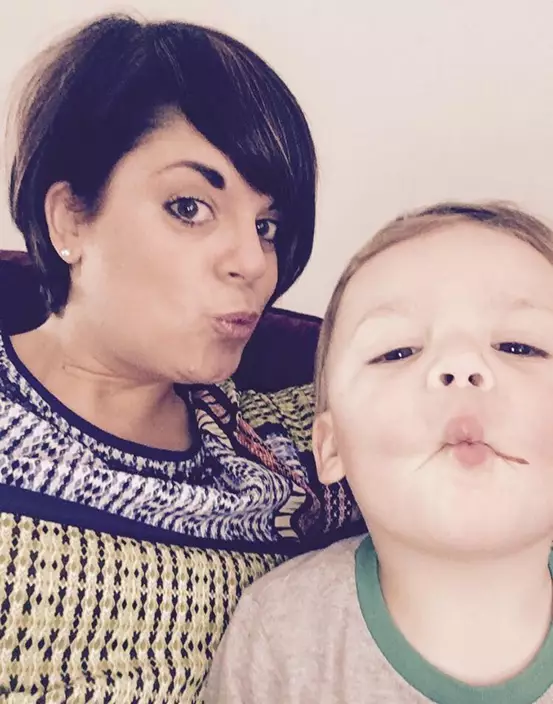
Gemma and Jack (Collect/PA Real Life)
Gemma and Ed, who met at work six years ago, were told Jack would need a major operation to remove the tumour, but afterwards his laughing seizures would be gone for good.
The tot was added to a waiting list and given medication to help reduce the attacks.
But while the family waited for his operation, the uncontrollable laughter did not falter.
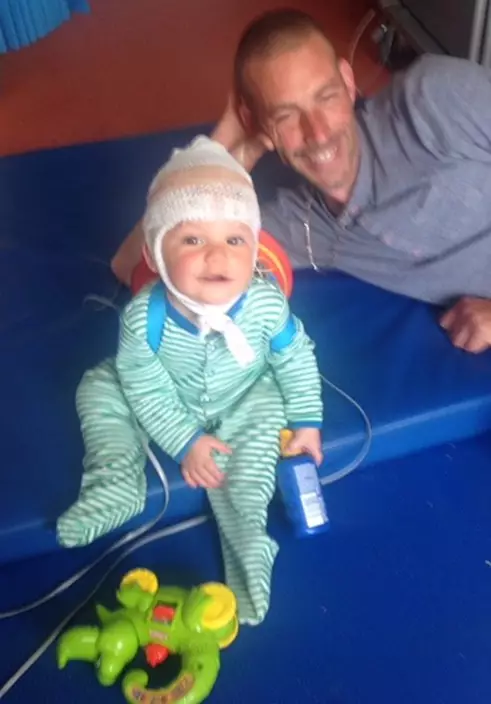
Jack having tests in hospital with dad Ed (Collect/PA Real Life)
“All his other areas of development were so amazing, like his speech and understanding, but he was laughing all the time,” Gemma said.
“It didn’t affect him eating solids at six weeks or walking at one-year-old – in fact, strangely, he could walk and laugh at the same time.
“He would go about his day as normal, but have the laughter too.”
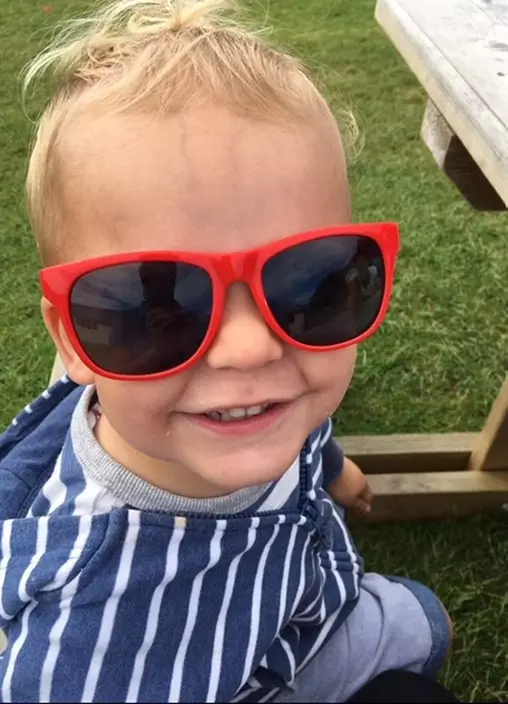
Jack (Collect/PA Real Life)
Then, two years after the chuckling first started, on June 16, 2016, Jack had successful surgery to remove the tumour at Bristol Royal Hospital for Children.
“Seeing Jack going away for the op was the worst day of my life,” his mum said.
“I had to sign a consent form to perform the procedure and I had no idea how I did it, my hand was shaking so much.”
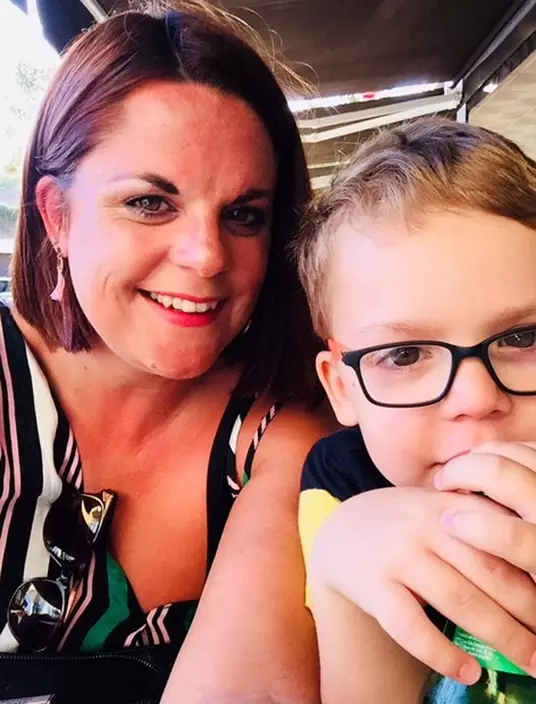
Gemma and Jack (Collect/PA Real Life)
Since the operation, Jack, now aged four, has not had one single laughing seizure.
Although his parents admit they can still get nervous when he giggles naturally – as he often does at jokes on TV cartoons – they are so thankful he can live a normal life.
“The day after the operation we realised Jack had not giggled once, which was a strange feeling,” Gemma said.”We were sat around waiting for him to do it, but he didn’t. But when we did hear him laugh properly for the first time it was amazing.”
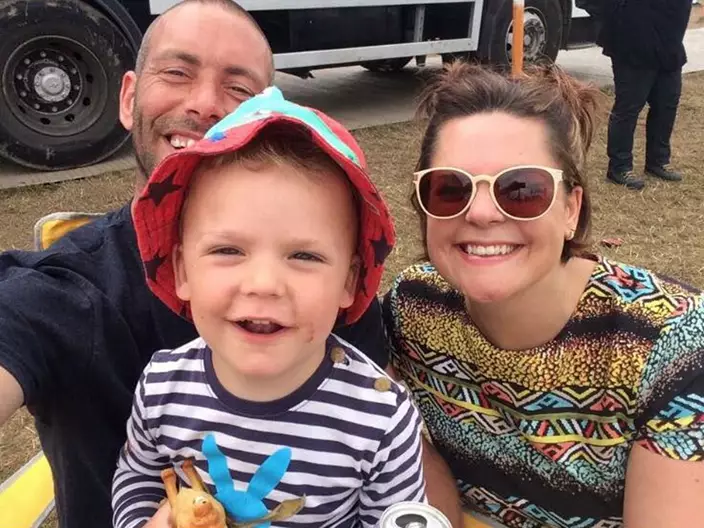
Gemma, Ed and Jack (Collect/PA Real Life)
Now a happy, healthy little boy, no one would know there had ever been anything wrong with Jack.
Gemma added: “He’s such a happy little boy now and is a real success story.
“He is such a cheeky little lad, with a great sense of humour, coming out with one-liners which make us all laugh.
“Hypothalamic hamartoma is so rare and I want other parents to know there is light at the end of the tunnel and things do get better. That operation changed Jack’s life, and ours, and we are so thankful.”



